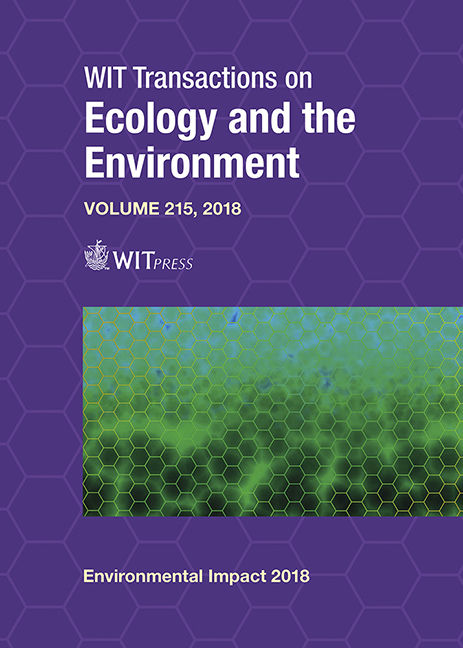ENVIRONMENTAL SUSTAINABILITY OPPORTUNITIES AT INFORMAL SETTLEMENTS IN UNESCO WORLD HERITAGE AREAS: A CASE STUDY OF HUE, VIETNAM
Price
Free (open access)
Transaction
Volume
215
Pages
12
Page Range
323 - 334
Published
2018
Paper DOI
10.2495/EID180291
Copyright
WIT Press
Author(s)
BRONTE NIXON
Abstract
Within a “socialist-state” context; Vietnam is a relatively progressive nation with strong economic and diplomatic growth. But it has not always been this way. Vietnam has a legacy of occupation, division and conflict. The informal settlement at the Hue Citadel; a UNESCO World Heritage site, became established during the Vietnam War in response to displacement and the need for protection. The informal settlement now comprises hundreds of dwellings situated around, and on top of, the Citadel walls. Without sufficient access to clean water, sanitation or waste management; coupled with a lack of infrastructure, the Hue informal settlement has impacted significantly upon the environment. Waterways have high nutrient levels and are stagnant and carp-infested and rubbish and waste is disposed of to waterways and streets. These issues are in-turn impacting upon the integrity of the heritage listing itself. As a result of this; there is now a push by the Thua-Thien-Hue Province to relocate informal settlement residents to new locations outside of the Citadel. This paper discusses the limited success of such relocation programs and alternatively outlines the potential to implement an incremental environmental improvement plan that could contribute to local sustainability and allow residents to remain in an area within which they have strong community connections.
Keywords
hue, informal settlements, world heritage, sustainability, environmental impacts





